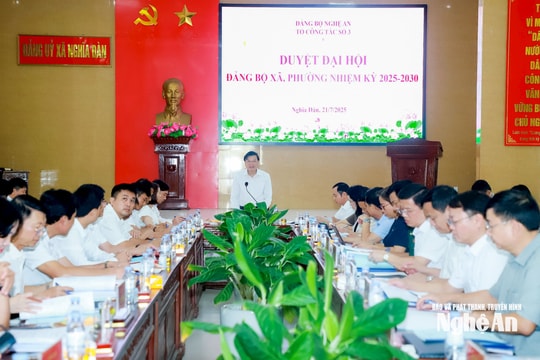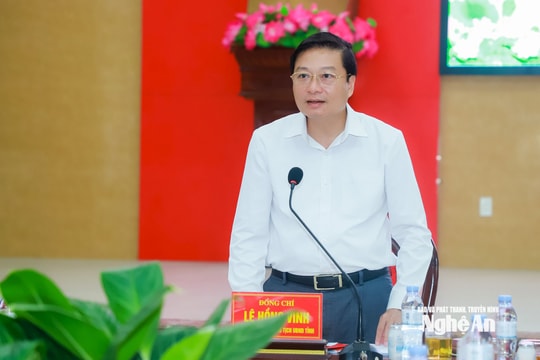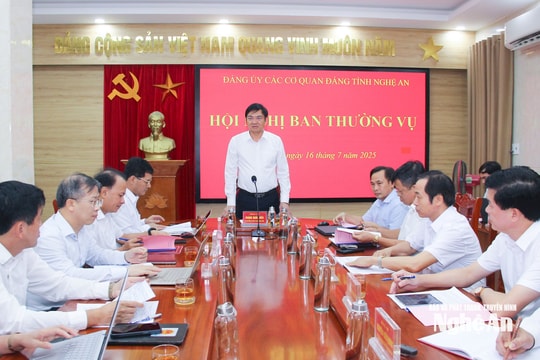Chairman of Nghe An Provincial People's Committee Le Hong Vinh chaired the approval of the Party Congresses of the communes: Kim Lien, Nam Dan, Van An, Dai Hue, Thien Nhan
On the morning of July 22, at Van An commune, comrade Le Hong Vinh - Deputy Secretary of the Provincial Party Committee, Chairman of the Provincial People's Committee, Head of Working Group No. 3 chaired the approval of the Party Congresses of the communes: Kim Lien, Nam Dan, Van An, Dai Hue, Thien Nhan.
Also attending were members of Working Group No. 3 according to the Plan of the Provincial Party Standing Committee; leaders of relevant departments and branches.
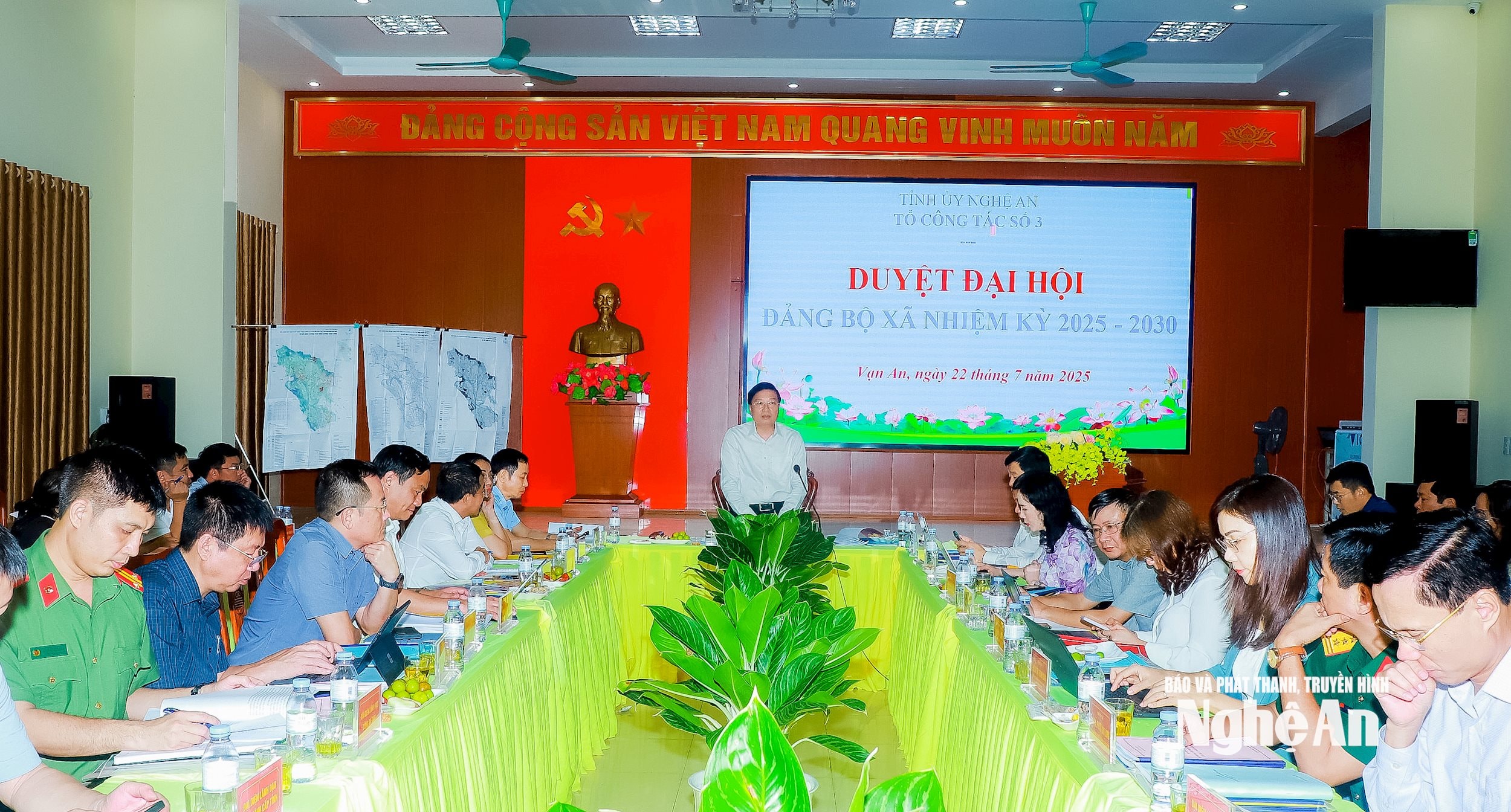
Direction of building new model rural areas
These 5 communes were formed on the basis of rearranging and merging communes and towns of Nam Dan district (old). This is an important advantage, because Nam Dan has a solid development foundation, has been recognized by the Prime Minister as meeting new rural standards since 2017, advanced new rural standards in 2024 and is also the first locality in Nghe An province to meet advanced new rural standards.
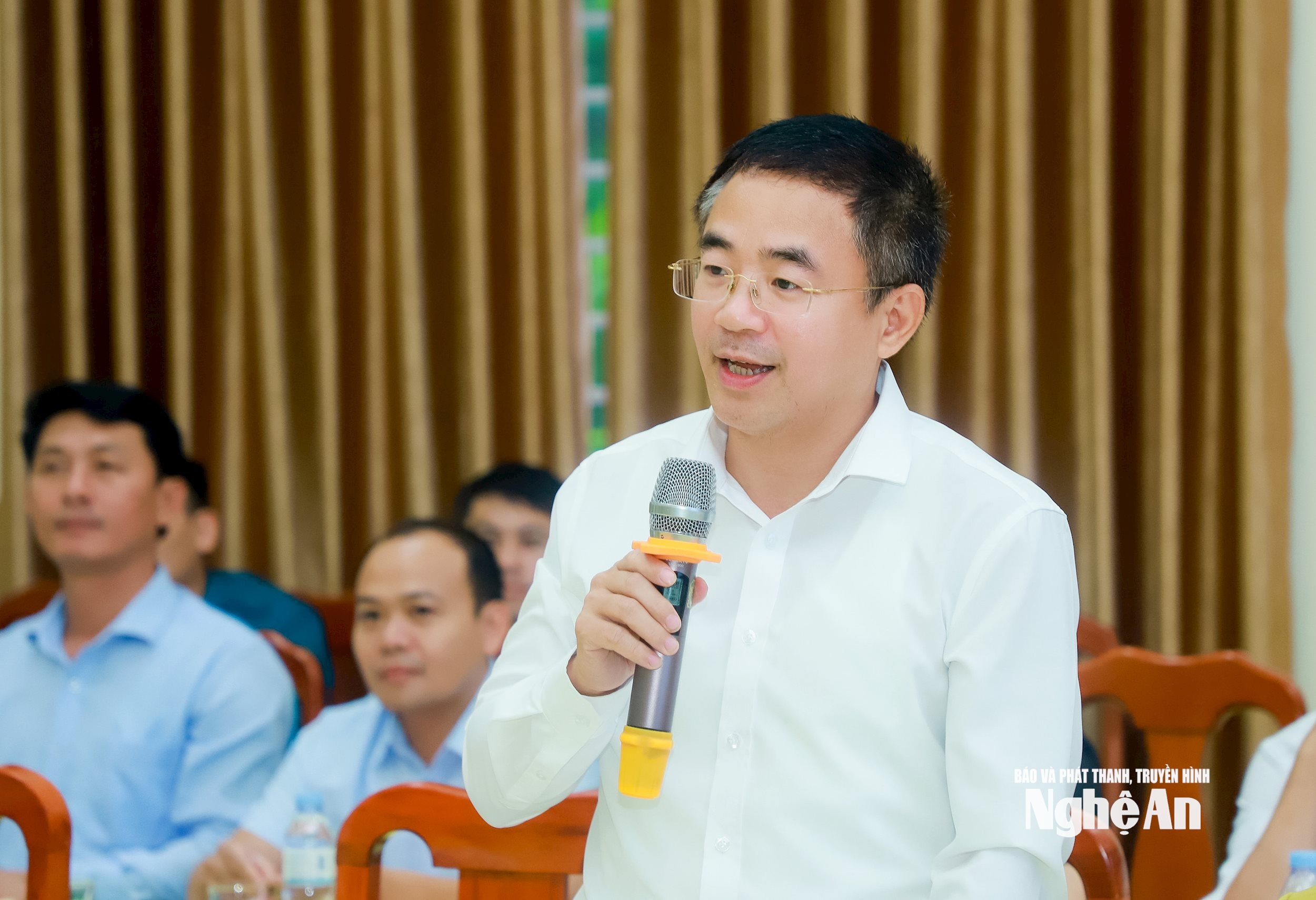
On that basis, the Draft Political Reports of the 5 communes were all built with specific goals, orientations and solutions, in line with the general development requirements of the country associated with the development characteristics of each locality with the goal of improving the quality of socio-economic development, preserving and spreading cultural and historical values.
At the same time, exploit the potential to become bright spots in building new model rural areas and developing cultural, ecological and service tourism, worthy of being the homeland of President Ho Chi Minh.
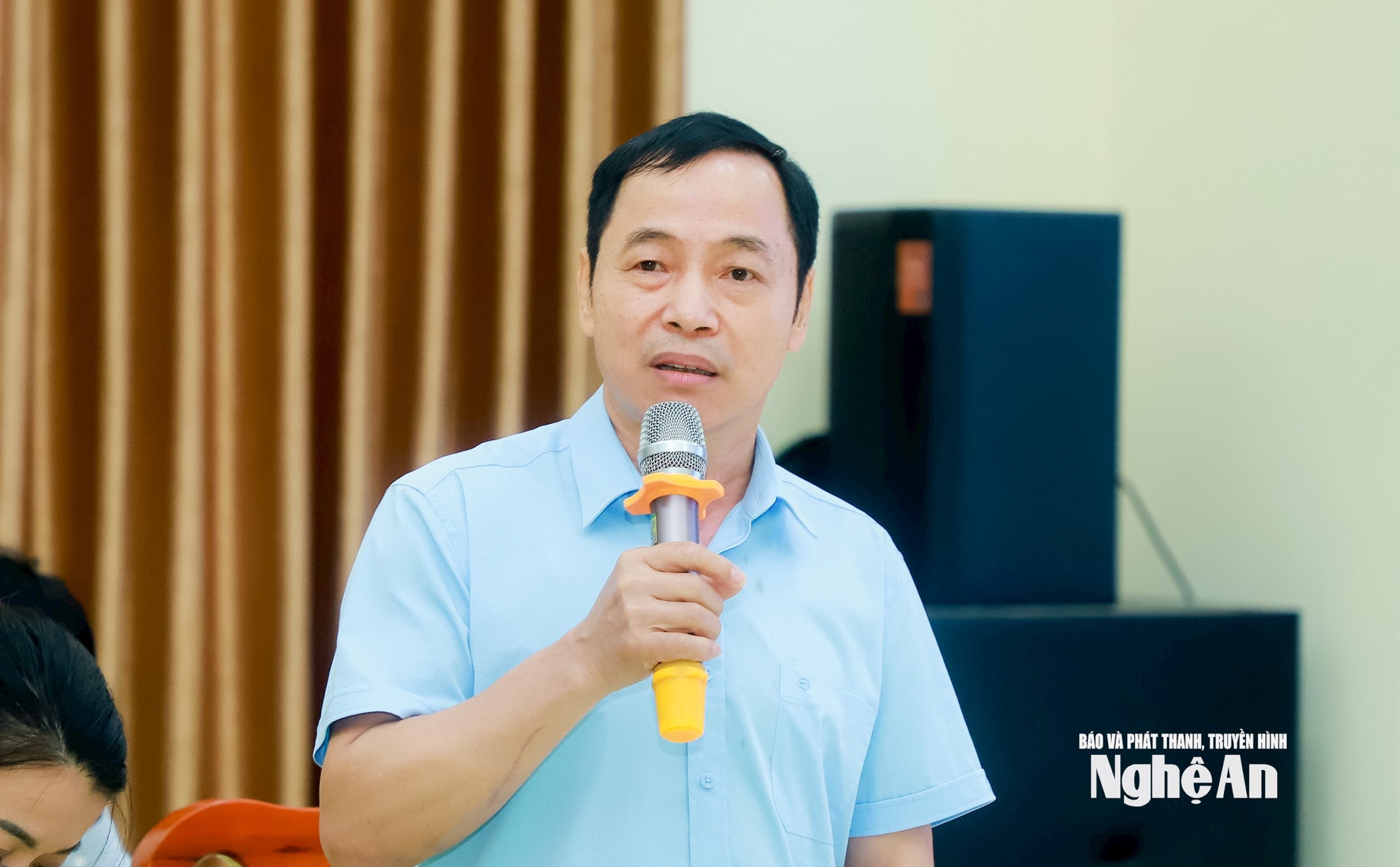
Kim Lien commune was established on the basis of merging 5 communes: Kim Lien (old), Nam Giang, Nam Cat, Hung Tien and Xuan Hong (old Nam Dan district), natural land area of 61.08 km2, population 55,471 people. Kim Lien commune Party Committee has 79 affiliated party organizations with 2,897 party members.
The draft Political Report of the Kim Lien Commune Party Committee sets out 25 targets, 6 key tasks, 3 breakthroughs, 3 key task groups; determined to successfully implement development goals, fulfill President Ho Chi Minh's wish to build Kim Lien into a model commune.
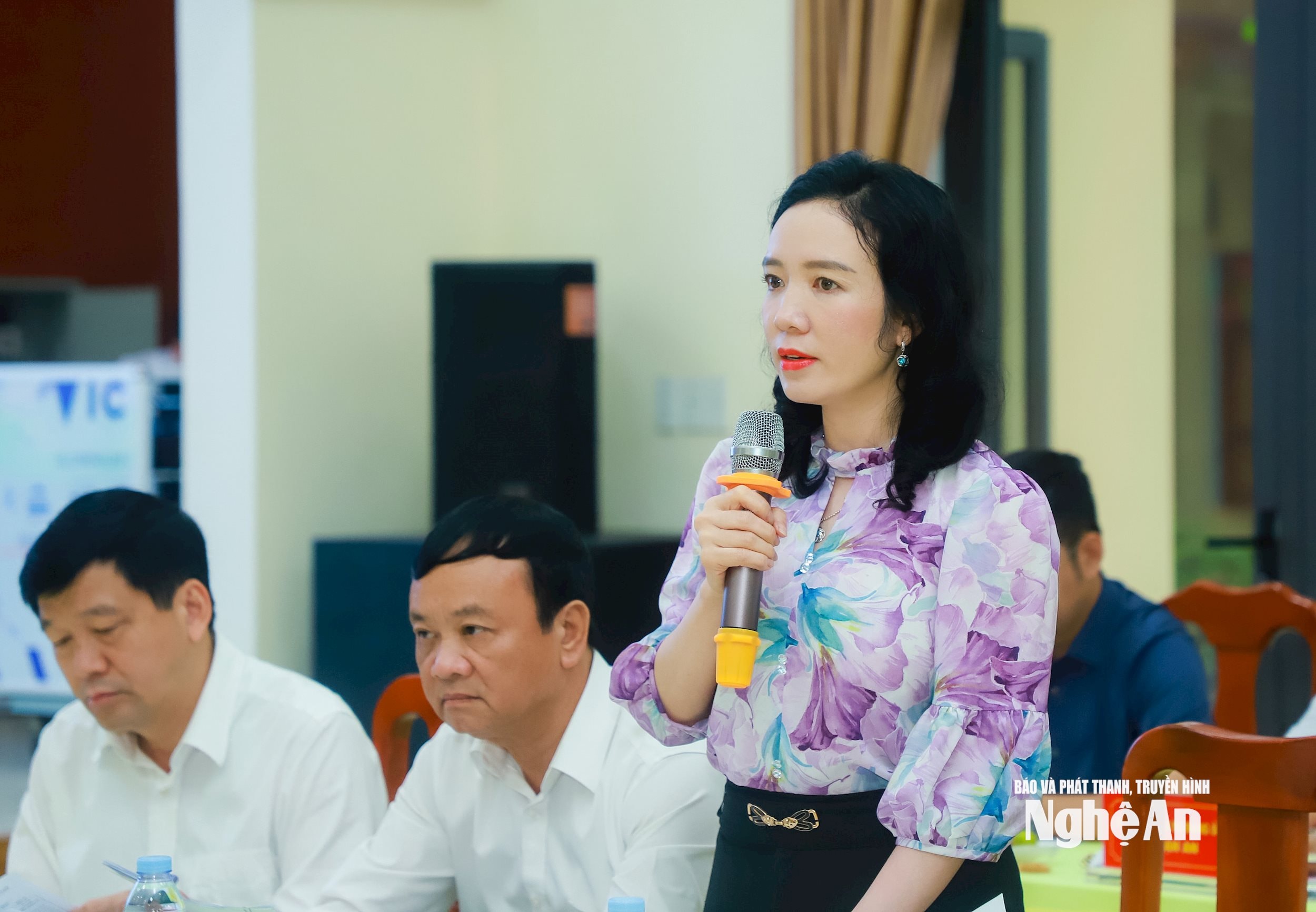
Nam Dan commune was established on the basis of merging 3 communes: Nam Hung, Nghia Thai, Nam Thanh (old Nam Dan district), with a total natural area of 67.60 km2.2, population 24,489 people, with 5,702 households. The commune Party Committee has 41 subordinate grassroots party organizations.
The draft Political Report of the Commune Party Committee sets the goal of building the commune into a model new rural commune through implementing 28 main targets, 7 key tasks, 3 breakthroughs, and 6 main solutions.
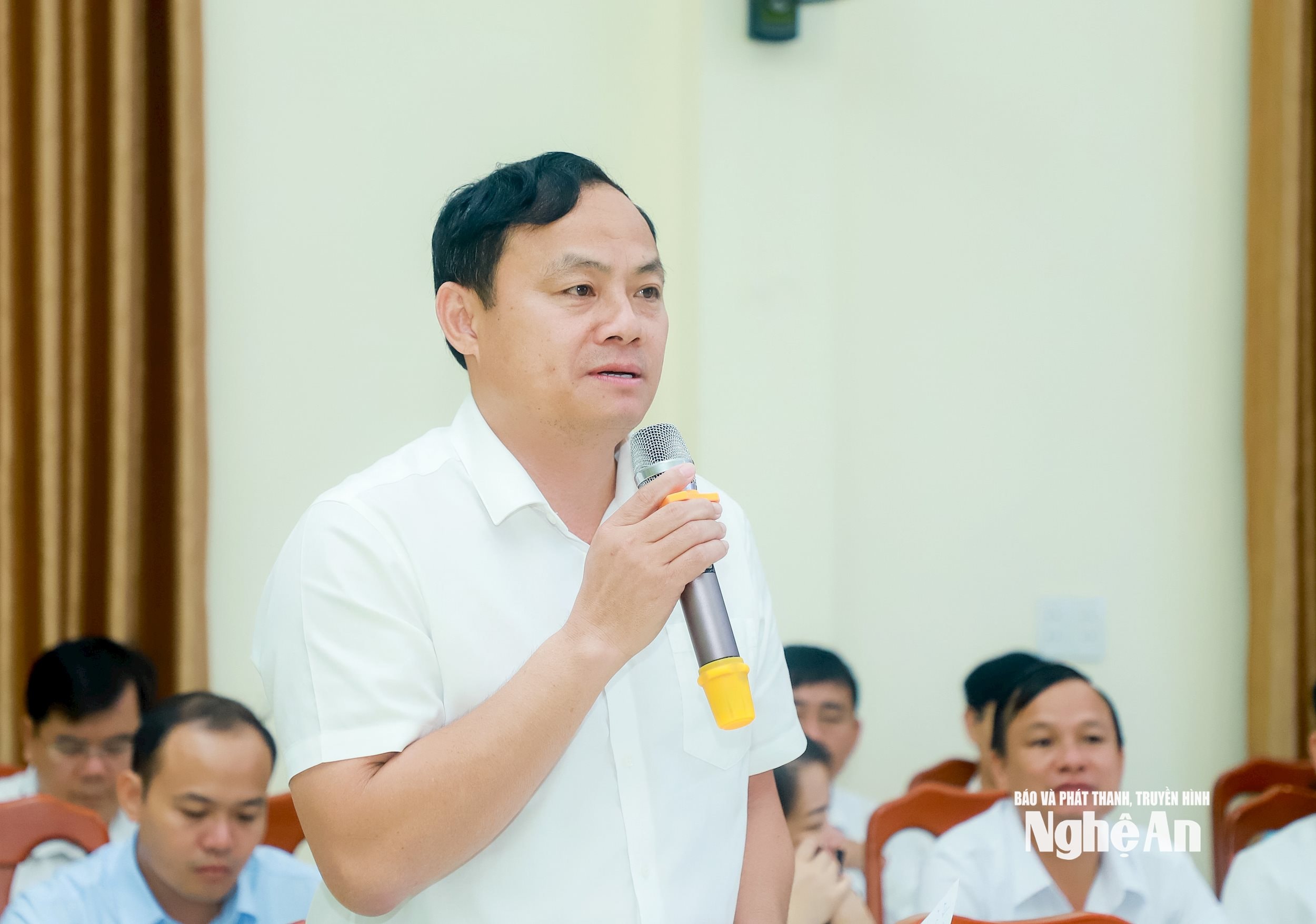
Dai Hue commune was established on the basis of merging the communes: Nam Linh, Nam Xuan, Nam Anh (old Nam Dan district), with a natural land area of 36.11 km2.2, population 24,441 people. Dai Hue Commune Party Committee has 36 affiliated party organizations with 903 party members.
The draft Political Report sets out 27 targets, 6 key tasks, 3 breakthrough tasks, aiming to strive to become a model new rural commune in the direction of developing environmental landscape associated with tourism by 2030.
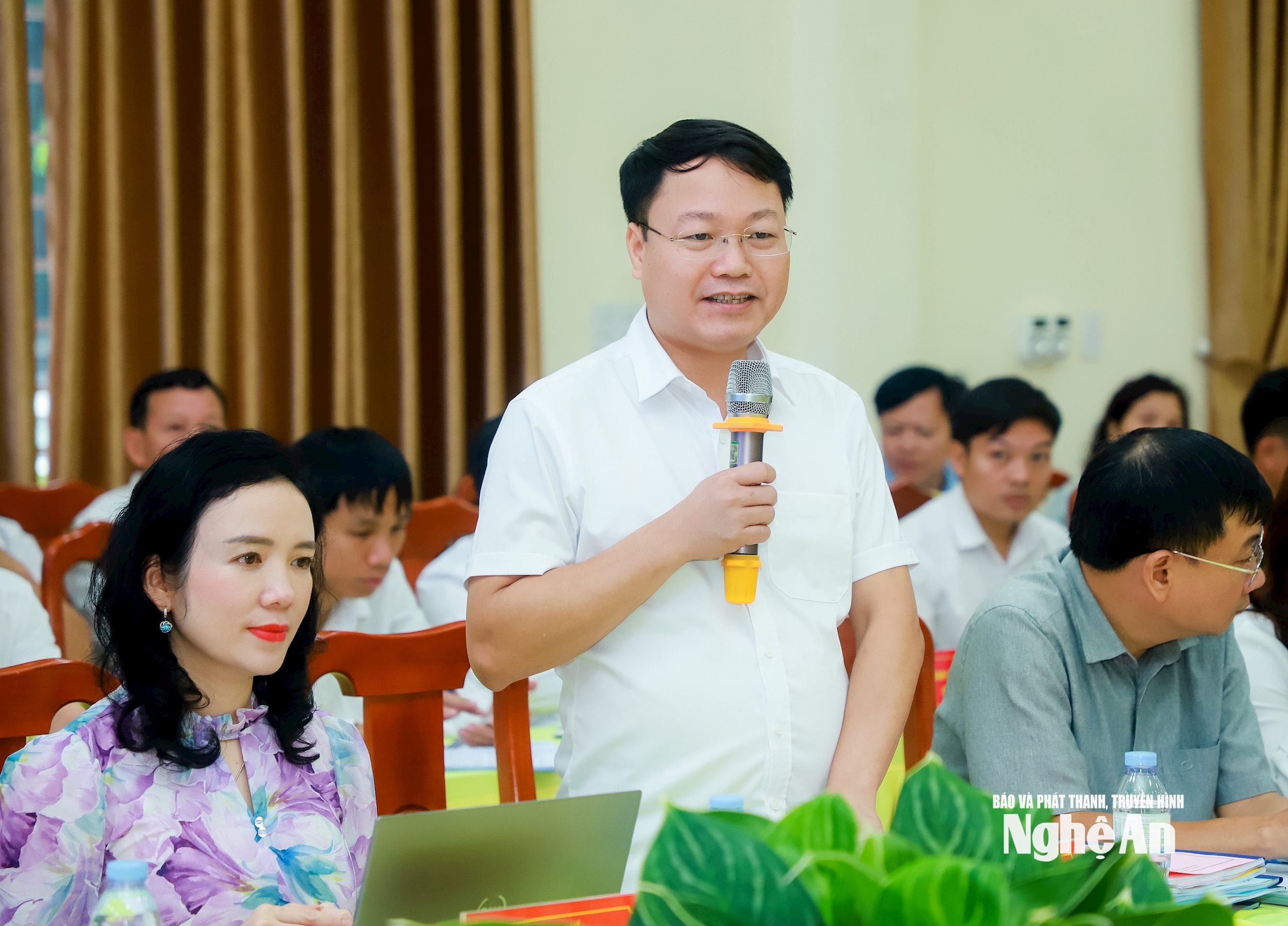
Van An commune was established on the basis of merging Nam Dan town (old) with Thuong Tan Loc and Xuan Hoa communes (old Nam Dan district), with a natural area of 56.37 km2.2, population 44,830 people. Van An commune Party Committee has 75 party committees and affiliated party cells with 2,355 party members.
In the Draft Political Report, the Commune Party Committee set the goal of successfully implementing development goals, striving to build Van An commune into a commune that meets the standards of a Class V urban area by 2030. To concretize the above goal, the commune has built 27 targets, 5 key tasks, 3 breakthroughs, 4 groups of tasks and main solutions.
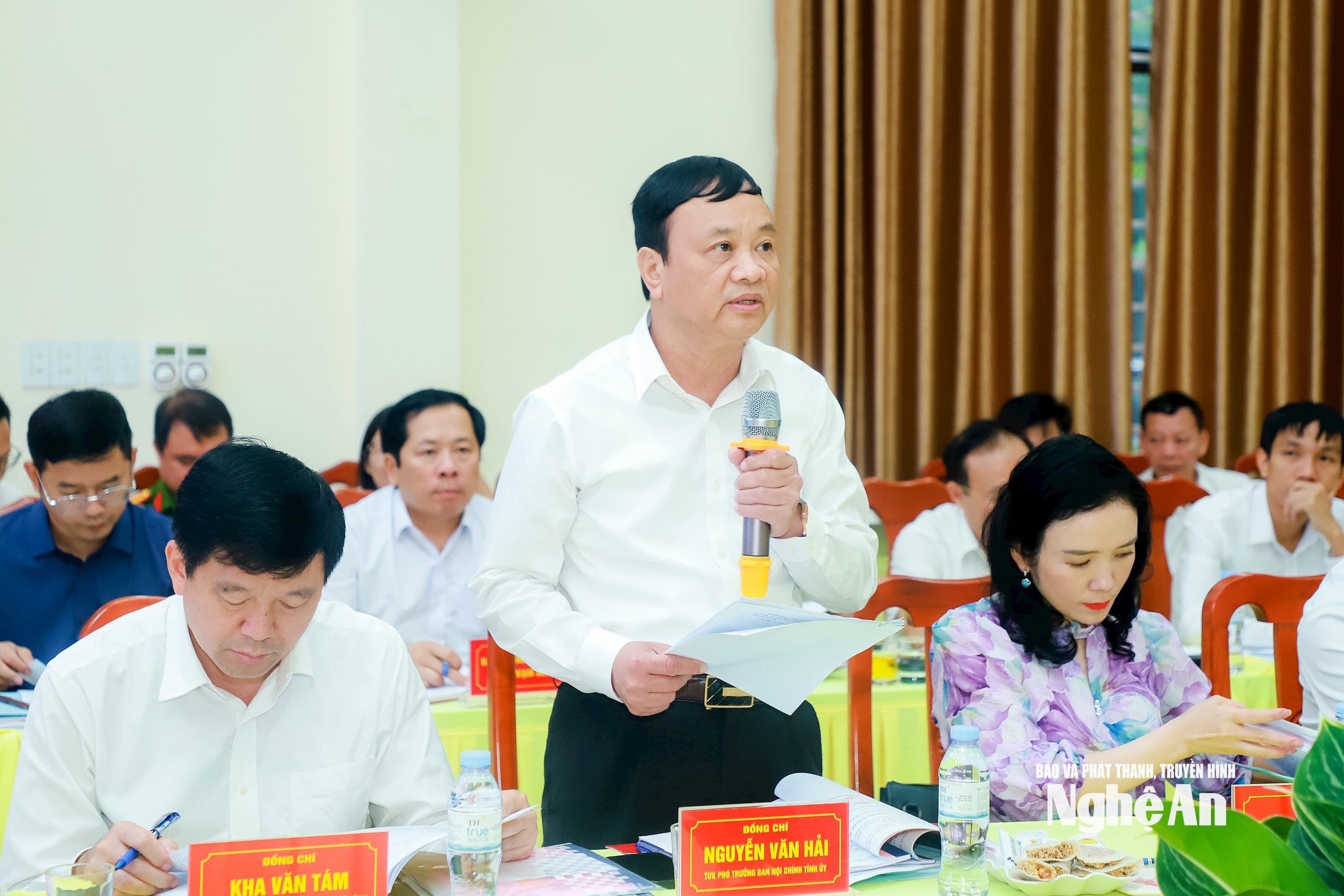
Thien Nhan commune was merged from 3 communes, including: Khanh Son, Trung Phuc Cuong, Nam Kim (old Nam Dan district), with a natural area of 70.81 km2, population 40,885 people. Thien Nhan commune Party Committee has 61 grassroots party organizations with 1,752 party members.
The Party Committee of Thien Nhan commune has developed a Draft Political Report with the goal of becoming a model new rural commune in education before 2030; thereby, it has set out 22 targets, 6 key tasks, 3 breakthroughs, and 3 main groups of tasks and solutions.
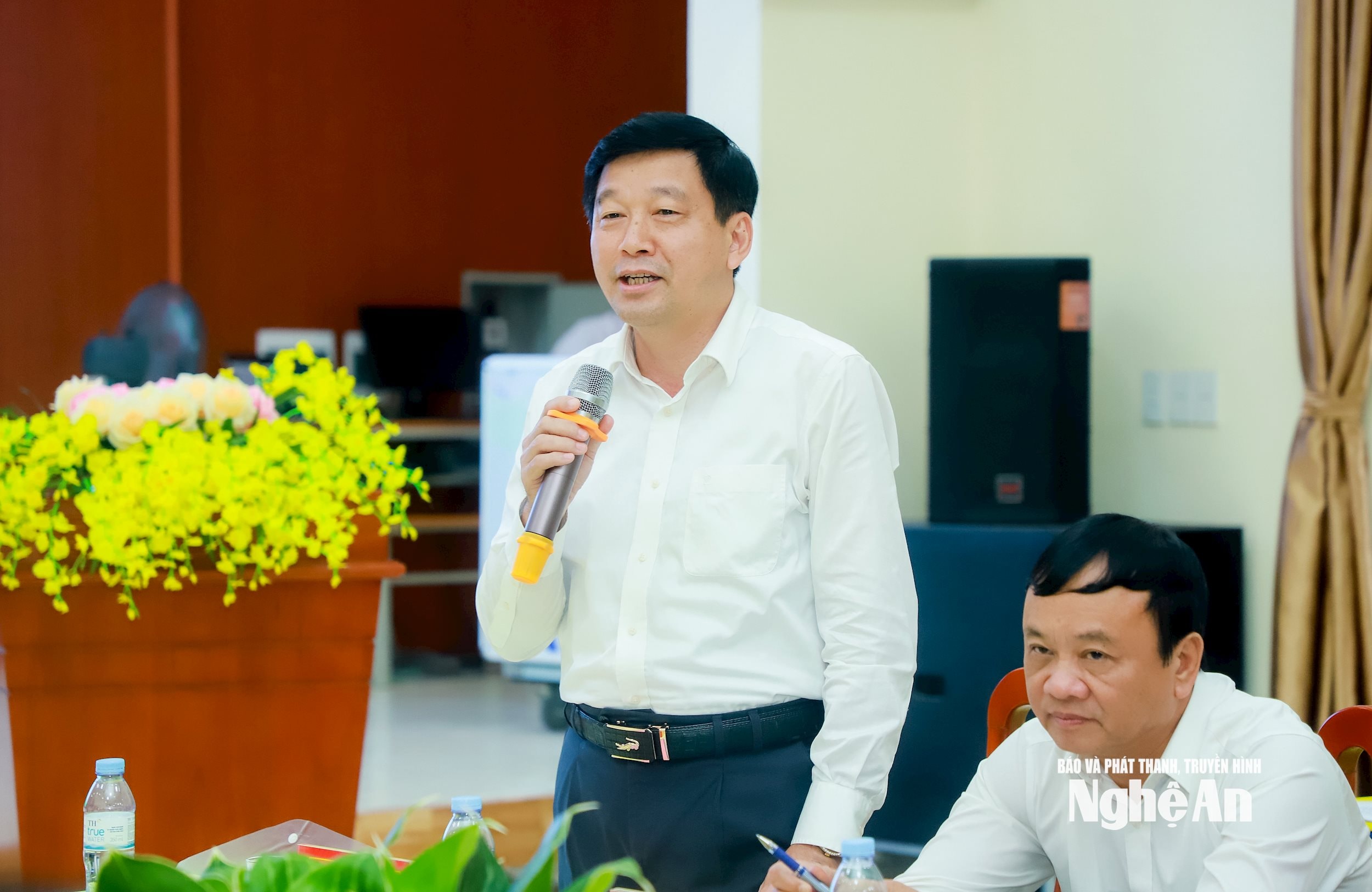
At the meeting, opinions of Working Group No. 3 contributed and suggested more contents for the 5 localities to complete the Draft Political Reports; in which, it was proposed to continue completing the Draft Political Reports in the direction of more clearly assessing the context and general situation, associated with highlighting the specific characteristics of each locality.
Communes also need to focus on reviewing and establishing new construction plans and other specialized plans to orient long-term development, ensuring regional connectivity on the basis of the previous Nam Dan District and Provincial Planning.
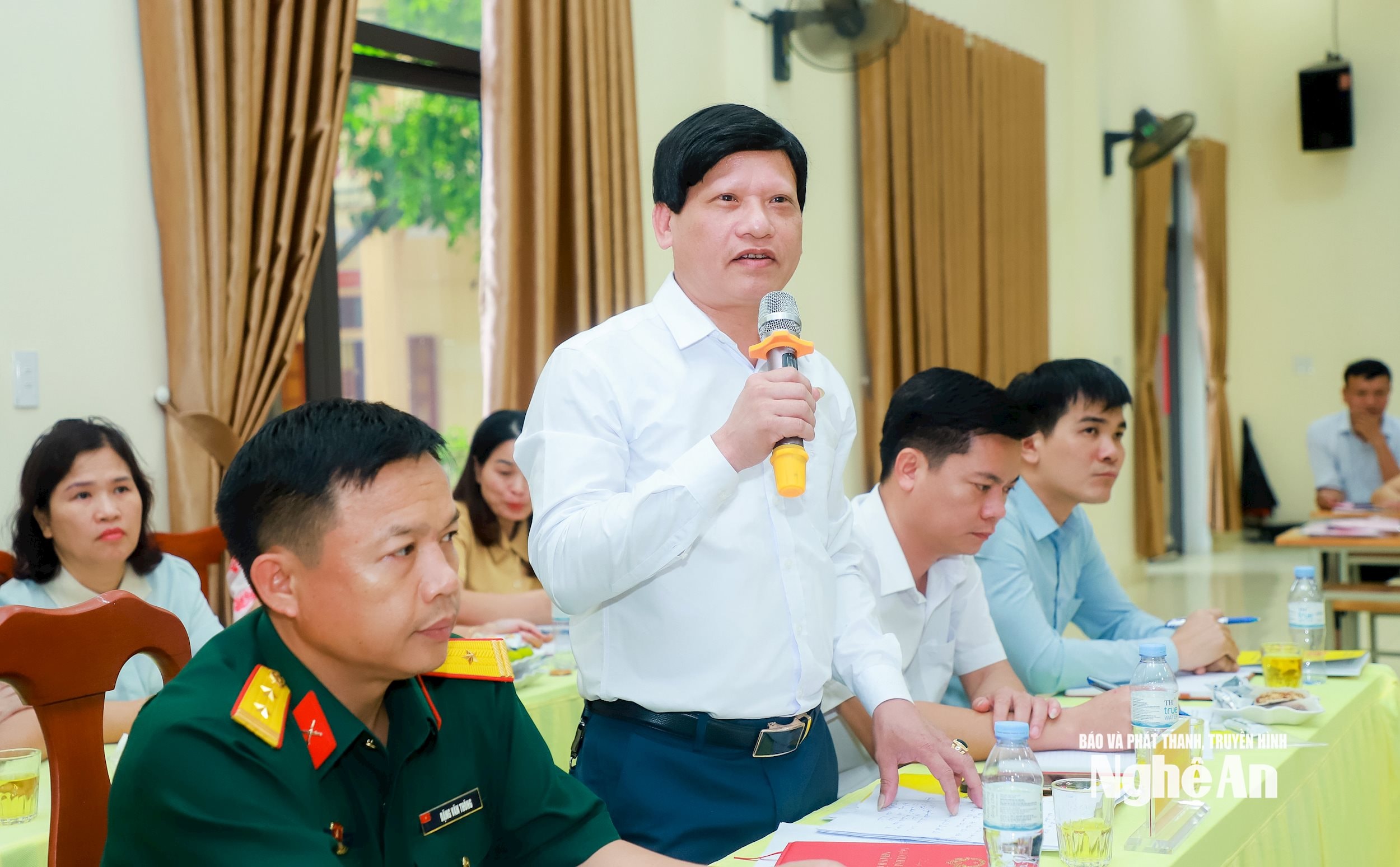
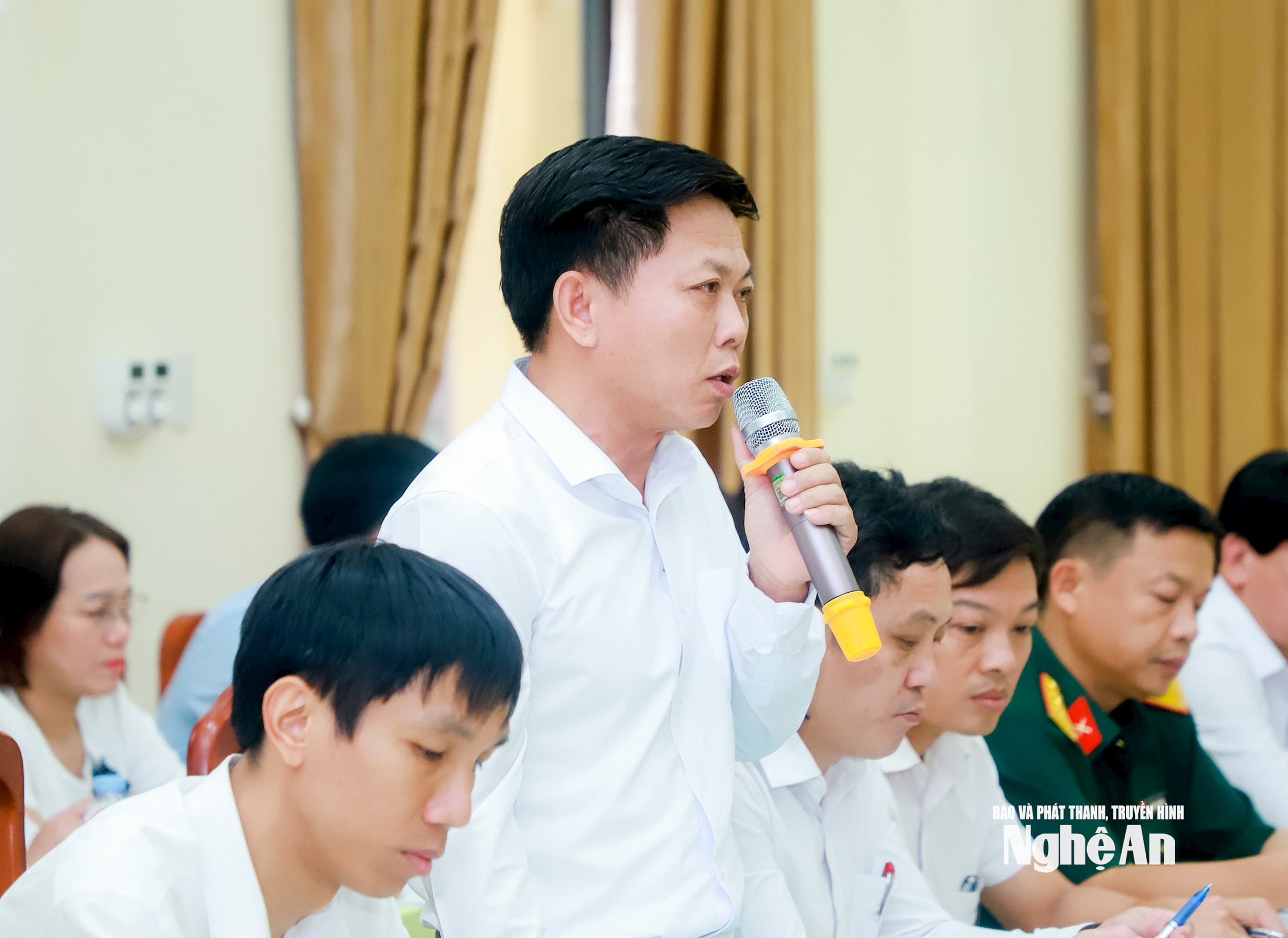
In addition, opinions emphasized the importance of building and developing human resources, especially training and fostering cadres and civil servants in the political system; raising awareness and skills for people, associated with promoting cultural values and traditions of President Ho Chi Minh's homeland and developing tourism as a breakthrough.
Communes need to strengthen and innovate propaganda and dissemination of laws; ensure close connection between targets, tasks and solutions set out with breakthroughs, creating momentum for sustainable development in the coming period.
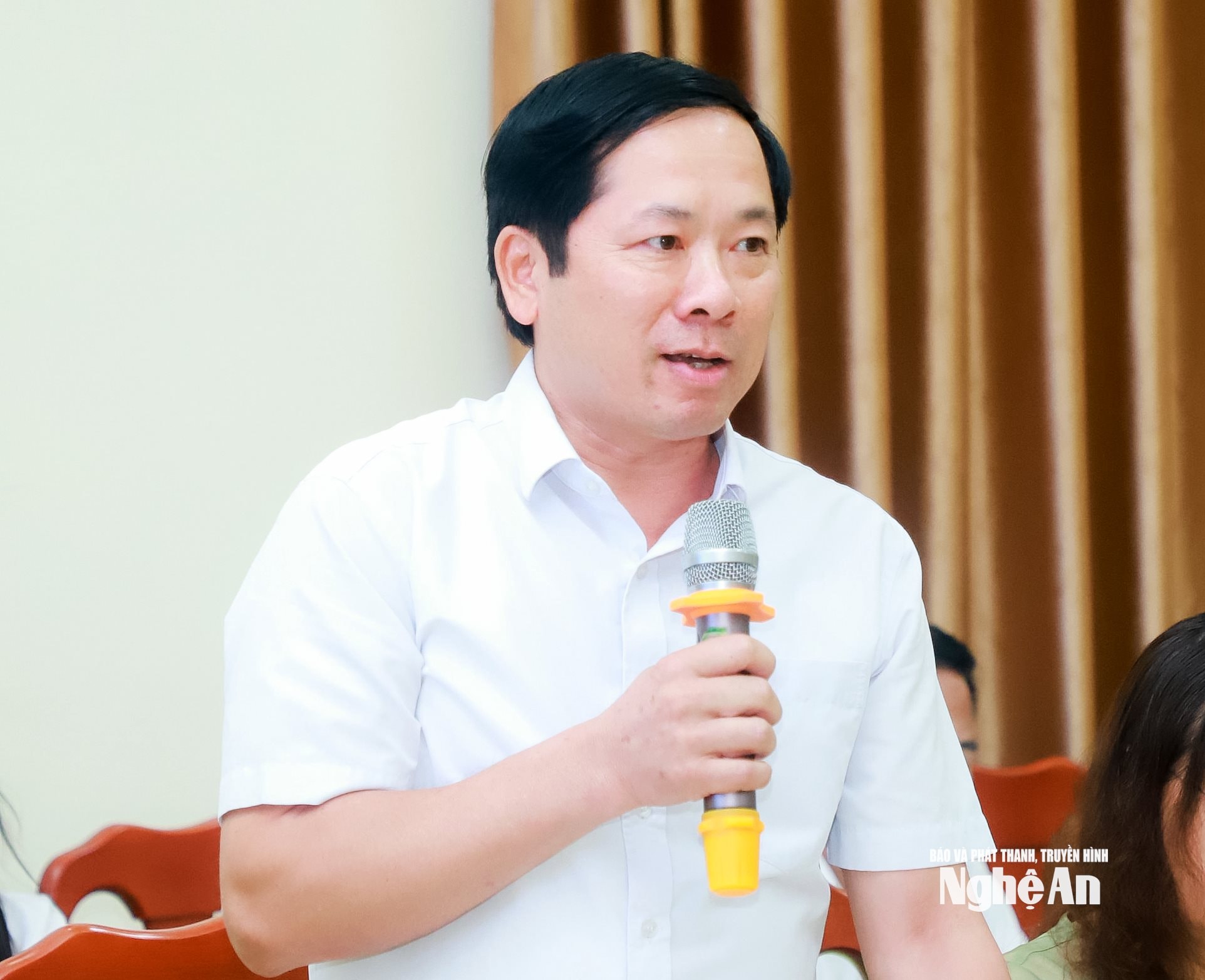
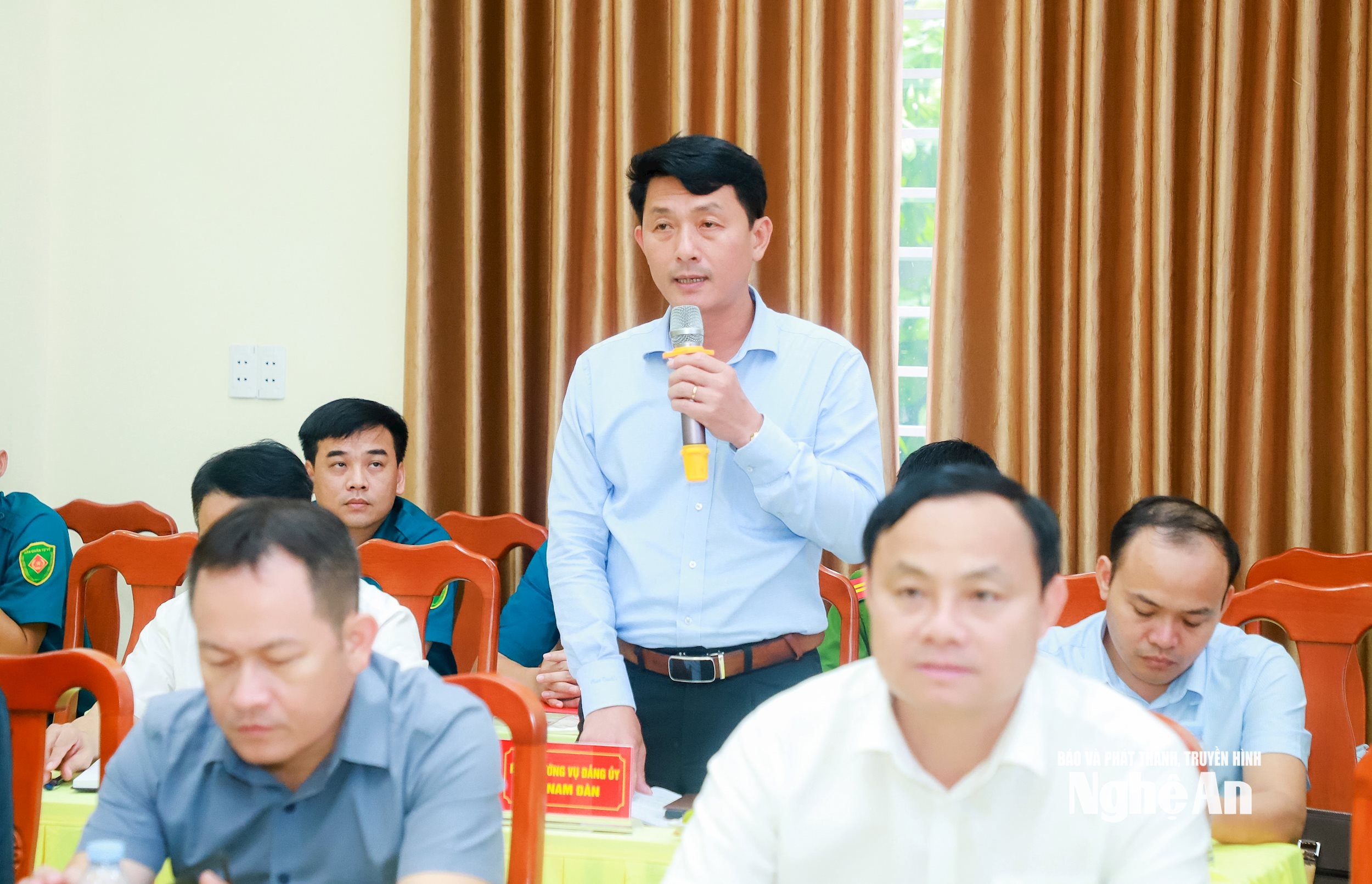
In particular, in the context of local governments operating under a two-level model, with the commune level being decentralized and delegated with many new powers, opinions requested that the Draft Political Report must clearly demonstrate the requirements for innovating the leadership methods of Party committees, promoting administrative reform, digital transformation in the Party system, and improving the effectiveness and efficiency of State management.
Identify "correctly, accurately, and precisely" to determine "the shape of our society in the document"
Concluding the meeting, Comrade Le Hong Vinh - Deputy Secretary of the Provincial Party Committee, Chairman of the Provincial People's Committee, Head of Working Group No. 3 acknowledged the efforts of localities in the first 20 days of operating the new communes under the 2-level local government; the spirit of solidarity and companionship among leaders of the new communes in the preparation work.
.jpg)
Evaluating the Draft Party Congress Documents of the 5 communes, he emphasized that the drafts basically meet the requirements of Directive No. 45-CT/TW of the Politburo and Circular No. 13-TT/TU of the Provincial Party Standing Committee on organizing Party congresses at all levels; in particular, the documents clearly demonstrate the will to strive and the spirit of attack in the new development period.
.jpg)
In general, the Chairman of the Provincial People's Committee emphasized that the old Nam Dan district area has many development advantages such as receiving special attention from the Central and the province, having a convenient transportation system, adjacent to VSIP Industrial Park and Vinh urban area; at the same time, possessing a diverse network of cultural relics, being a hub connecting with many relics and scenic spots in other localities. Besides, Nam Dan is also a land rich in revolutionary traditions, studiousness, and diligence.
.jpg)
On that basis, the Chairman of the Provincial People's Committee requested localities to develop the theme and motto of the congress with specific content. Each commune needs to fully assess its potential, advantages, and difficulties.From there, he identified "correctly, accurately, and precisely" to determine "the shape of his society in the document".
To implement that orientation, comrade Le Hong Vinh suggested that the 5 communes take advantage of the Nam Dan regional planning that is still in effect for the next 2 years as a foundation to make plans for each commune, in order to ensure administrative boundary management, orient investment organization and promote emulation movements between localities. The planning needs to be linked with construction planning, land use and sectors, fields, in order to implement synchronously and effectively.
.jpg)
Besides identifying local potentials and strengths, the Chairman of the Provincial People's Committee emphasized the province's consistent viewpoint of managing according to commune-level administrative boundaries, but economic, cultural, health, educational development... must follow a regional approach, ensuring connectivity and maximizing overall advantages.
Thereby, he requested that the communes must clearly define the content of development linkage with other localities in the province and outside the province for development.
.jpg)
The head of the People's Committee of Nghe An province spent a lot of time analyzing each specific request, emphasizing that the Draft Documents need to clearly demonstrate the development orientation based on the "four pillars", including four important resolutions of the Politburo (Nos. 57, 59, 66 and 68) as well as the Law on Organization of Local Government in 2025; clarifying the role of the Vietnam Fatherland Front and socio-political organizations.
.jpg)
In addition, the documents need to emphasize key tasks, including: Training, fostering and rotating cadres, developing party members. At the same time, communes need to build and promote community culture, skills and behavioral culture of the people; develop craft villages, restore and effectively exploit historical and cultural relics; ensure security and order; maintain, improve and deepen the criteria for advanced new rural areas... thereby, exploiting local potential for socio-economic development, especially tourism development...
.jpg)
In addition to setting out general requirements, Chairman of the Provincial People's Committee Le Hong Vinh also gave specific directions to each commune to complete and improve the quality of congress documents; and agreed on the time to hold the congress./.

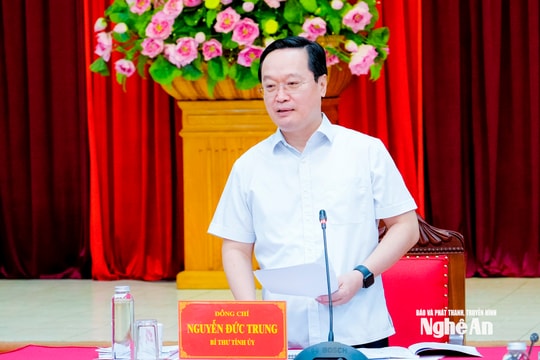
.jpg)
